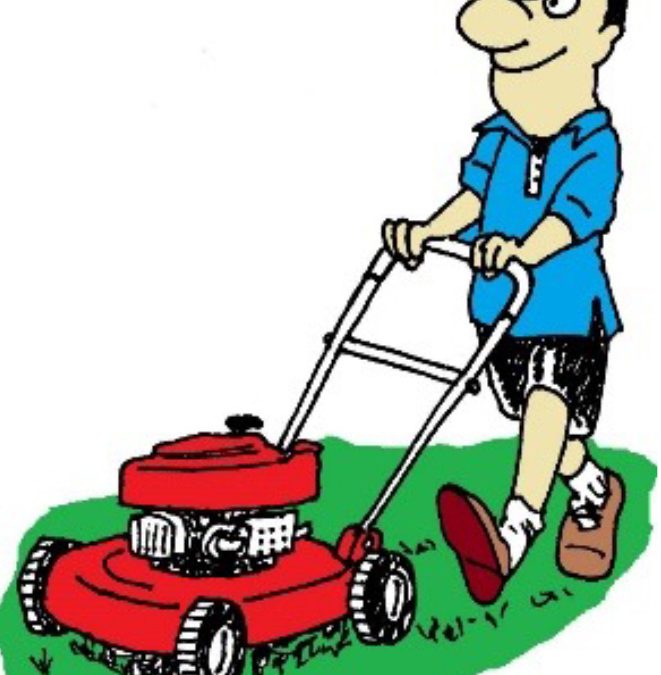“Francis, you’re my expert in nature and gardening. Tell me, what is going on down there on the blue planet? Whatever happened to the dandelions and violets and milkweed I started eons ago? I started out with a perfect no-maintenance garden plan, you know, with plants that grow in any type of soil, withstand drought and multiply with abandon. The nectar from the blossoms attracts butterflies, honeybees and flocks of songbirds. I expected to see a vast, colorful garden by now, but all I see are acres of green rectangles.”
“Well, Lord, it’s the tribe that settled there, you know, the Suburbanites. They started calling your special plants ‘weeds’ and went to great lengths to kill them and replace them with grass.”
“Grass? But it’s so boring. It’s not colorful. It doesn’t attract butterflies or birds or bees, just those unappealing grubs and sod worms. It’s sensitive to temperatures and has no tolerance for drought. Do the Suburbanites really want all that grass growing there?”
“Apparently so, Lord. They go to great pains to grow it and keep it green. They begin each spring by fertilizing their grass and poisoning any other plant that pops up in the lawn.”
“The spring rains and warm weather will make the grass grow awfully fast. That must make them happy.”
“Apparently not, Lord. As soon as it grows a little, they cut it, sometimes twice a week.”
“They cut it? Then what, do they bale it like hay?”
“Ah, no, not exactly. Most of them rake it up and put it in bags.”
“They bag it? Why? Is it a cash crop? Do they sell it?”
“No. Quite the opposite. They pay to throw it away.”
“Now let me get this straight. They fertilize the grass so it will grow, then cut if off and pay to throw it away?”
“Yessir, that’s it.”
“Well, then, these Suburbanites must be relieved when summertime comes and we cut back on rain and turn up the heat. That surely slows the growth and saves them a lot of work.”
“Well, no, not quite. You see, Lord, when the grass slows its growth rate, they drag out hoses and sprinklers so they can water it. That way, they continue to mow it and put it in bags and pay to get rid of it.”
“My goodness! Well, at least they kept some of the trees. That was a stroke of genius, if I do say so myself. The trees grow leaves that provide beauty in the spring and shade in the summer. In autumn, leaves fall to the ground and form a natural blanket to maintain moisture that protects the trees and other plants, all part of my natural cycle of life.”
“You’d better sit down, Lord. The Suburbanites have a different take on it. As soon as the leaves fall, they rake them into great piles, put them in bags and pay to have them hauled away.”
“No! But what do they do to protect the shrub and tree roots in the winter, to maintain the moisture?”
“Well, it seems that after they dispose of the leaves, they go to stores where plants and trees are sold and purchase a product called mulch. This, they haul home in large bags and spread it around in place of all the leaves they just disposed of.”
“I see. And this mulch come from where?”
“Um, well, they cut down trees and grind them up to make the mulch.”
“Enough! I don’t want to think about this anymore. St. Catherine, you’re in charge of the arts. What movie have you scheduled for tonight?”
“It’s called Dumb and Dumber, Lord, it’s about …”
“Never mind. I think I just heard the whole story from St. Francis.”
